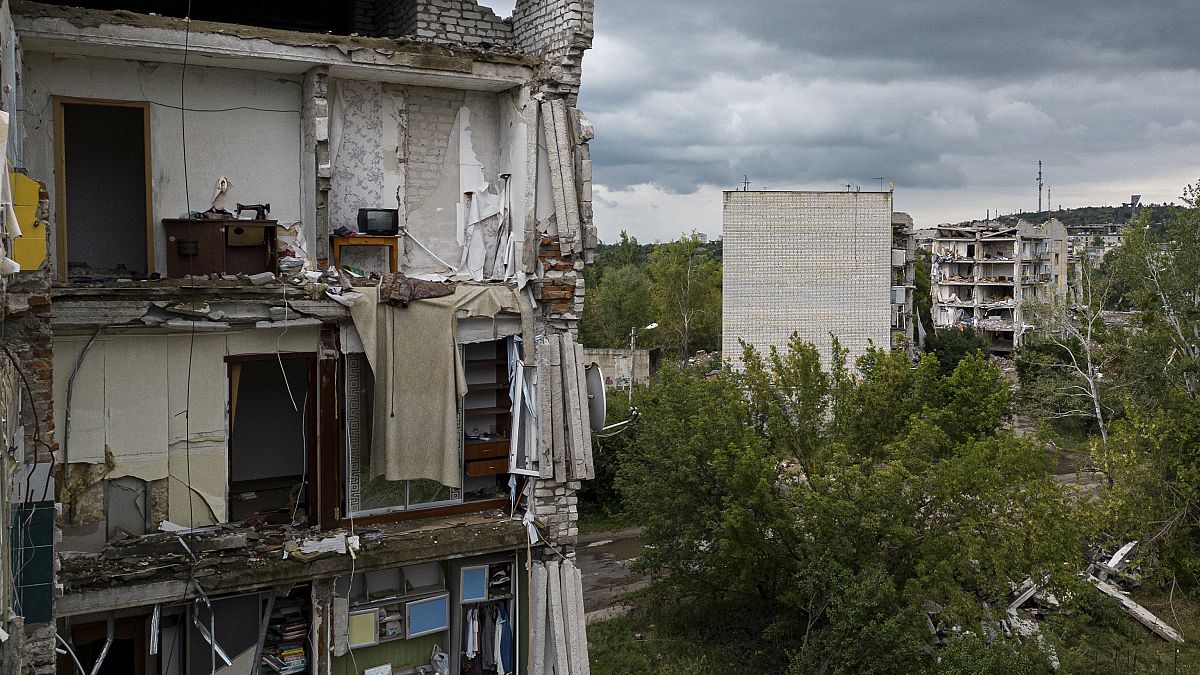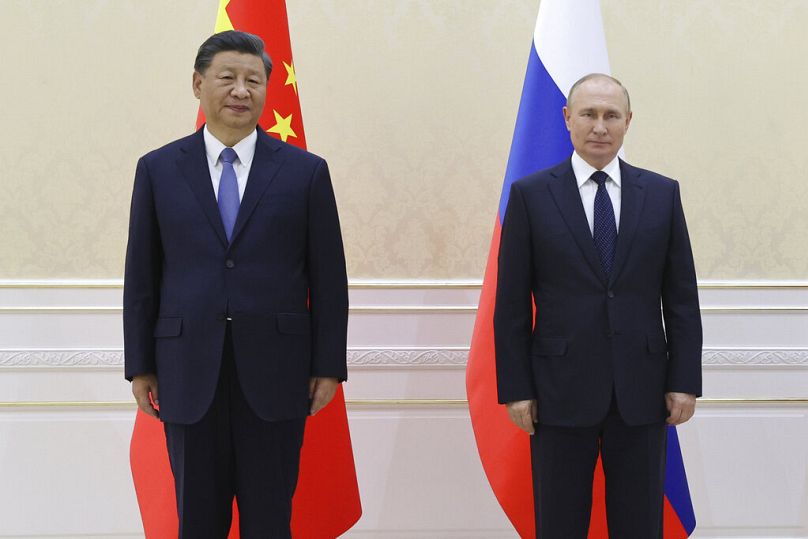Here is our daily round-up of developments from the war in Ukraine.
1. Missiles hit reservoir dam in city where Zelenskyy was born
A reservoir dam in Kryvyi Rih -- the largest city in central Ukraine and the birthplace of President Volodymyr Zelenskyy -- has been hit by eight cruise missiles, officials said.
The water system had "no military value" and hundreds of thousands of civilians depend on it daily, Zelenskyy said in a video address released early on Thursday.
He alleged Russia was a “terrorist state” following the attack. Moscow has not reported or commented on the shellings.
“You are weaklings who fight civilians,” he called Russians in his nightly speech on Wednesday. “Scoundrels who, having escaped from the battlefield, are trying to do harm from somewhere far away.”
No casualties have been reported following the destruction of the dam, despite the damage caused.
On Thursday, efforts were being stepped up to repair the city's damaged water system.
2. Von der Leyen praises Ukraine during Kyiv visit
EU chief Ursula von der Leyen praised Ukraine's efforts in readying itself to join the bloc as she made her third trip to Kyiv since the start of the war.
Ukraine was given candidate status after applying to join the bloc in the early days of Russia's invasion.
"The accession process is well on track. It's impressive to speed, the determination, the preciseness with which you are progressing," von der Leyen said at a press conference.
Nevertheless, French president Emmanuel Macron has said it could be decades before Ukraine becomes a member.
Von der Leyen told journalists that discussions with Zelenskyy had focused on several "big topics," one of which was how Europe could help prepare internally displaced Ukrainians for the winter.
"We have earmarked already 150 million euros to make sure that the internally displaced people here in Ukraine have shelter," she said.
In a sign of further EU commitment, the European Parliament completed the drawn-out political process of a 5 billion-euro preferential loan to Ukraine, the key part of a nine billion-euro package of aid to offset the cost of war.
"The five billion can be dispersed in the first tranche mid-October. So there's a clear path that we have discussed together," she added.
3. German foreign minister urges Scholz to decide on sending weapons
Germany’s foreign minister is urging Chancellor Olaf Scholz to decide on whether it will supply Ukraine with more tanks.
In an interview with the daily newspaper Frankfurter Allgemeine Zeitung published on Thursday, Foreign Minister Annalena Baerbock said that, while such a decision could only be taken jointly by Germany’s governing three-party coalition and its international partners, it would have to be made swiftly.
“In the decisive phase that Ukraine currently finds itself, I also don’t believe that it’s a decision which can be delayed for long,” she was quoted as saying.
Economy Minister Robert Habeck, who is also a member of the Greens party, said on Thursday that he expected Germany would shortly send more of “the right weapons” to Ukraine.
Kyiv has said it would like to get German Leopard-2 tanks, but Berlin has so far rebuffed that request while providing other arms, including howitzers and self-propelled anti-aircraft weapons.
At present, the far-right party Alternative for Germany -- while not in government -- has opposed sending further arms to Ukraine, with its co-leader Tino Chrupalla having claimed it is “not our war”.
There have also been protests in Berlin this summer, with demonstrators exhorting the German government not to get involved in the conflict.
4. Putin and Xi meet in Uzbekistan
Vladimir Putin and Chinese president Xi Jinping met on Thursday in the Uzbek city of Samarkand, with the Russian president praising China's leader for what he described as a "balanced" position on the war.
At their first face-to-face meeting since the war, Xi said he was very happy to meet his "old friend" again after Putin said crude attempts by the United States to create a unipolar world would fail.
"We highly value the balanced position of our Chinese friends when it comes to the Ukraine crisis," Putin told Xi.
"We understand your questions and concern about this. During today's meeting, we will of course explain our position."
Xi, who the Communist Party is due next month to bestow a historic third leadership term and thus cement his place as the country's most powerful leader since Mao Zedong, did not mention Ukraine in his public remarks.
China has refrained from condemning Russia's operation against Ukraine or calling it an "invasion" in line with the Kremlin, which casts the war as "a special military operation".
The last time Xi and Putin met in person, just weeks before Russia invaded Ukraine in February, they declared a "no limits" partnership and inked a promise to collaborate more against the West.
Still, Beijing is perturbed by the impact on the global economy and has been careful not to give material support to Russia that could trigger Western sanctions on China's economy.
Xi and Putin's partnership has been considered a major geopolitical development after China's meteoric economic ascent since the 1980s.
5. Russian mercenary group leader filmed recruiting convicts
The head of a Russian mercenary group was filmed attempting to recruit prisoners to fight in Ukraine, reports the BBC.
Yevgeniy Prigozhin, who founded the Wagner Group -- a paramilitary organisation which has supported separatist forces in breakaway regions, like Donbas -- was recorded as telling the detainees that "if you serve six months (in Wagner), you are free."
"Nobody goes back behind bars," he added.
It is believed that the incident happened in a penal colony in the central Russian republic of Mariy El, and facial recognition software has offered a 71-75% likelihood of the individual present being Prigozhin.
The Russian oligarch has controlled the Wagner Group since 2014 and is a close friend of Putin, although he has previously denied any associations with the mercenary organisation.
In the video, he can be seen saying that he was the "representative of a private war company".

